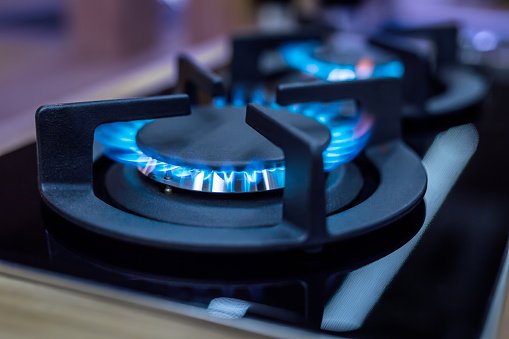Introduction.
Cooking gas, also known as Liquefied Petroleum Gas (LPG), is a critical part of daily life in Nigeria. It’s cleaner than firewood or kerosene, and with the government pushing for more people to use LPG, the demand is growing every day.
Starting a cooking gas retailing business can be a profitable venture, but like any business, it comes with its challenges. Let’s break down how to get started and what you need to know.
Why Cooking Gas Retailing is a Big Deal in Nigeria
The switch to cooking gas is happening fast. Firewood, which many people still use, causes health problems and is bad for the environment.
Kerosene is expensive, and electricity isn’t reliable in many areas. This leaves cooking gas as the best option for households and businesses.
According to the Nigerian Liquefied Petroleum Gas Association (NLPGA), the country’s LPG consumption hit over 1 million metric tons in 2022, and it’s still growing.
The government wants to raise this to 5 million metric tons by 2030, which means a lot more people will be buying cooking gas. That’s where you come in.
What Does a Cooking Gas Retailing Business Involve?
Starting this business means setting up a space where you can store and sell LPG to customers. You could also refill gas cylinders for people.
The business might seem simple, but it’s very regulated because of the risks involved with handling flammable gas.
How Do I Start a Cooking Gas Retailing Business in Nigeria?
1. Learn the Basics
Before jumping in, take time to learn how the LPG industry works. Talk to people already in the business, attend training sessions, or do some research online. Understanding safety measures and how to manage risks is crucial.
2. Create a Business Plan
Write out your goals, how much money you’ll need to start, who your target customers are, and how you’ll make profits. A clear plan will help you stay focused and attract investors if needed.
3. Register Your Business
You’ll need to register your business name with the Corporate Affairs Commission (CAC) in Nigeria. This makes your business legal and allows you to open a business bank account.
4. Find a Suitable Location
Location is everything. You’ll need a spot that’s easily accessible but meets safety regulations. Your site must be far from residential areas, schools, or crowded spaces to reduce risks in case of a fire.
5. Get Licenses and Permits
Cooking gas retailing is heavily regulated in Nigeria. You’ll need permits from agencies like:
- DPR (Department of Petroleum Resources): For operating licenses.
- State Fire Service: To certify your business meets fire safety standards.
- Environmental Agencies: For waste management and environmental impact.
6. Set Up Your Infrastructure
You’ll need gas cylinders, storage tanks, a dispensing unit, fire extinguishers, and safety gear. It’s also important to fence your site and put up warning signs to prevent accidents.
7. Build a Supply Chain
Partner with reliable gas suppliers who can deliver quality LPG on time. Many businesses buy their gas from major depots or marketers.
8. Hire and Train Staff
Your staff should know how to handle gas safely and serve customers efficiently. Proper training is a must to prevent accidents.
9. Advertise Your Business
Let people know you’re open for business. Use social media, posters, and word of mouth to reach customers. You could also offer discounts to attract your first few clients.
How Much Money Do You Need to Start?
The cost of starting a cooking gas retailing business in Nigeria depends on its size. A small operation with just a few cylinders might cost about ₦500,000 to ₦1 million, while a larger setup with storage tanks and dispensing units could require ₦5 million or more.
Your major expenses will include:
- Land or rent for your site.
- Licenses and permits.
- Gas cylinders and storage tanks.
- Equipment like dispensers and safety tools.
- Marketing and branding.
What Are the Challenges?
1. Safety Concerns
Handling gas comes with risks like leaks or explosions. Following safety protocols and training your staff can help minimize these issues.
2. Regulatory Compliance
Navigating Nigeria’s regulatory environment can be tricky. Make sure you stay updated on the latest rules and renew your licenses on time.
3. Competition
Many people are entering the cooking gas business, so you’ll need to stand out by offering excellent customer service or competitive prices.
4. Price Fluctuations
The price of LPG often changes due to market conditions. This can affect your profit margins, so plan for these fluctuations in your pricing strategy.
FAQs
Q: Do I need a big space to start?
A: Not necessarily. For a small-scale operation, a modest space with proper safety measures can work. For larger setups with storage tanks, you’ll need more land.
Q: How can I attract customers?
A: Offer good service, competitive prices, and educate your customers about the benefits of cooking gas over other fuels. Building trust is key.
Q: Is this business safe?
A: It can be if you follow all safety guidelines, use quality equipment, and train your staff well.
Q: Can I start small and grow later?
A: Yes, you can start with a small operation and expand as you gain more customers and experience.
Final Thoughts
The cooking gas retailing business in Nigeria has a lot of potential. As more households and businesses switch to LPG, the demand will only keep growing.
By starting small, ensuring safety, and offering great service, you can build a successful business in this industry.
So, what’s stopping you? Would you consider starting a cooking gas retailing business, or do you have other ideas in mind?





GIPHY App Key not set. Please check settings